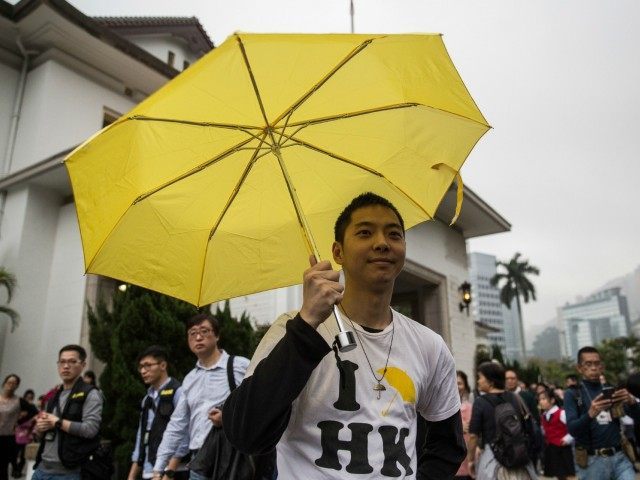Thousands of activists are marching in the streets of Hong Kong to protest the Chinese government’s pre-screening of candidates in the upcoming 2017 elections.
The protesters dressed in yellow and carried yellow umbrellas—symbols of Hong Kong’s pro-democracy movement which hearken back to the 2014 Umbrella Revolution, when over 100,000 Hong Kong citizens took to the streets to advocate political reforms.
The protests are symbolized by the umbrellas because many carried them in the initial marches to protect themselves against the police force’s use of pepper spray.
The Chinese government is allowing Hong Kong to have elections, but is choosing the candidates the people of Hong Kong may vote for.
Many in Hong Kong are wary of the plan, but students in particular have been vocal about their opposition to the proposed electoral road-map.
“We’re not North Korea; we know what freedom is,” Carol Lo, a Hong Kong resident and protester, said. “How will [my daughter] survive if this situation gets worse and worse?”
Hong Kong has a unique relationship with China. A British colony until 1997, when Hong Kong became a Chinese territory, Beijing promised that special freedoms would be granted to the city under the slogan “One nation, two systems.” Now, however, many in Hong Kong see that promise as empty, and view their democracy as a sham.
About 2,000 to 3,000 marched this Sunday. There were no reported clashes with police or security forces.
Although the number of protesters on Sunday was a far cry from the number of people who were in the streets nine months ago, more rallies are planned for this week, and the movement will likely gain more traction.
Top lawmakers of both the Civic Party, which opposes the election plan, and the New People’s Party, which supports it, have gone on the record to say they believe that ultimately the plan will fail, even though it may seem the Umbrella Revolution is running out of steam.
According to James Rice, a professor of philosophy and law at Hong Kong’s Lingnan University, people have stopped marching in the streets “because they have realized these are useless kinds of exercises. It doesn’t mean they don’t support the movement.”
Although the protests remained peaceful, the police did arrest nine people, accused of conspiracy to make explosives and plotting to commit a terrorist act.
Some on social media suspect that the raid may have been staged to turn public opinion against the pro-democracy movement by tying it to terrorist activity. The superintendent of the Hong Kong police, however, says that explosives and other suspicious materials were found during the raid, and defended the arrests.

COMMENTS
Please let us know if you're having issues with commenting.